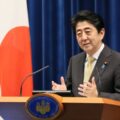Make the Decision to Abolish Tariffs on Agricultural Products
< Key Points >
- *High density negotiations are making progress and moving towards a conclusion.
- *Defending tariffs on agricultural products at any cost does not mean successful negotiations for Japan.
- *A high-level abolition of tariffs will influence the political climate in the United States.

KIMURA Fukunari Ph.D., Professor, Keio University
Negotiating the Trans-Pacific Strategic Economic Partnership Agreement (TPP) is not an easy task. Negotiations are even more difficult as the TPP now covers countries that have an inexperienced level of freedom and a new exposure to international rulemaking. The density of negotiations is extremely high. Japan, who joined talks later on in the process, participates in a meeting practically every week. The speed of these negotiations is also remarkably faster than those of ordinary free trade agreements (FTA).
At present, topics with a large gap among the participating countries are reported to be: Tariffs, the protection of intellectual property rights, competition policies (over preferential treatment of state-owned companies), and the environment. In other areas, negotiations are coming close to an agreement. Given that tariffs, which are the crux of trade negotiations, are being focused on, we should interpret this as meaning negotiations are heading towards a conclusion.
♦ ♦ ♦
The approval rate of the TPP by the Japanese public has always been high. For example, a July 2013 poll in the Nikkei newspaper shows the number of those who were in favor of participation in the TPP was higher than those who were against it, and in October 2013 those who answered that the abolition of tariffs, at least partially, in five important items such as rice was “reasonable” made up more than 50% of respondents.
The reason for such an amiable acceptance appears to be the widely shared perspective that the globalization of corporate activities will not just strengthen the international competitiveness of companies, but also be beneficial for the Japanese public as a whole. In fact, large companies, as well as smaller companies, local governments and even labor unions in Japan support the globalization of Japanese companies.
| Twenty One Areas of TPP Negotiations | |
| Areas that deepen WTO commitments (WTO+) | Areas uncovered by the WTO (WTO-X) |
|
○ Market access for goods ○ Rules of origin ○ Customs ○ Sanitary and phytosanitary measures (SPS) ○ Technical barriers to trade (TBT) ○ Trade remedies (safeguards, etc.) ○ Cross-border services ○ Temporary entry ○ Financial services ○ Telecommunications ○ E-commerce ○ Dispute settlement |
○ Government procurement ○ Intellectual property ○ Competition ○ Investment ○ Environment ○ Labor ○ Administrative and institutional matters ○ Cooperation and capacity building ○ Cross-sectoral matters |
In a 2012 empirical study in which myself and Ando Mitsuyo, an associate professor at Keio University, used panel data of Japanese manufacturing companies and found that those which increased the number of subsidiaries in East Asia had a higher rate of increasing jobs in Japan.
International production networks, which developed mainly in East Asia, are a source of competitiveness for Japan and Japanese companies. Thus further improvement in the investment environment on the part of emerging and developing countries is necessary. The most important pillars for economic growth strategies for Japan, or the third arrow of “Abenomics” (Structural Reform) are the attainment of the TPP and other mega-FTAs, the promotion of further globalization of Japanese companies, and a delay in, or avoidance of, a hollowing-out in Japan.
The final judgment of the economic effect of the TPP needs to be made by looking at how qualified agreements will be reached; Whether policies for that purpose will be implemented as promised; how much of resulting improvements in policy environment and preferential treatment will be utilized; and how much of the policies associated with the TPP, such as benefits for small companies, will be put into practice. At least once the negotiations are concluded, there will not be any doubt that the TPP will open up a new horizon of international trade policies.
The essential features of the TPP are, first, a high level of liberalization and, second, international rulemaking. Regarding liberalization, the abolition of tariffs and the liberalization of services and investment, which was insufficient in the past FTAs of Japan, will achieve significant results. In terms of international rulemaking, the TPP will become an unprecedented example of the protection of intellectual property, government procurement, competition, dispute settlement, and so on.
♦ ♦ ♦
In comparison with policy disciplines under the World Trade Organization (WTO), TPP includes a lot of both WTO plus (WTO+), which deepens commitments under the WTO, and WTO extra (WTO-X), which goes further into policy modes not covered by the WTO. Looking at the twenty-one areas of TPP negotiations, some are in a rather precarious situation for determining how they should be classified. However, in this article they have been roughly classified according to a paper written in 2010 by Henrik Horn, Mavroidis and Sapir, and are presented in the table above. The investment climate will dramatically improve particularly in emerging and developing countries through the TPP negotiations in these areas.
The conclusion of TPP talks will also accelerate negotiations of other mega-FTAs and improve their quality. As Japan is currently advancing negotiations of the Regional Comprehensive Economic Partnership (RCEP), the China-Japan-South Korea FTA and the FTA between Japan and the European Union (EU) in parallel with the TPP, Japan is in an extremely advantageous position to encourage improvement in investment in emerging and developing countries.
The RCEP, which includes China and India, could have a large economic impact as it encompasses the international production networks which have evolved in East Asia. As long as the negotiations move forward, China and the Association of Southeast Asian Nations (ASEAN) will have no other choice but to become serious about RCEP negotiations. Mega-FTAs have already begun competing in international rulemaking. The early conclusion of the TPP is also extremely important to avoid stifling these developments.
The present bottleneck in the TPP negotiations is the abolition of broader measures such as the protection of agriculture in Japan, particularly tariffs imposed on agricultural products. Although it is obvious to everyone that Japanese agriculture has to change in and of itself, and considering past history, it will take time to implement fundamental reforms. International trade policies will not wait for agricultural reforms in Japan. Therefore, response to the TPP and other mega-FTA negotiations should be initially prioritized in terms of time. Then, in the meantime, agricultural reforms can also be accelerated.
In Japan, since the announcement of participation in the TPP negotiations by Prime Minister Abe Shinzo in March 2013 and Japan’s participation in the July 2013 talks, constructive changes have been happening in the protection of agriculture, which was once deemed to be the bedrock of Japanese society. The conflict is not between agriculture and manufacturing anymore. The struggle concerns arguments between those who try to defend their vested interests with no regard to protection costs incurred by the public, and those who try to build up their competitiveness by exposing themselves to the international competition.
As Japan engages in bilateral FTA negotiations with Australia and Canada in parallel with the TPP, there are many varieties of negotiation strategies. However, it is necessary to have a good idea of what Japan should eventually do as a country. Although maintaining tariffs on agricultural products is often reported as if this measure alone makes for successful negotiations, this has never been the case. It is entirely in Japan’s national interest to lead the TPP negotiations to a conclusion and reach as high a level of agreement as is possible.
If Japan is able to significantly reduce tariffs on agricultural products, a conclusion to the TPP will become increasingly likely and it will be easier for the political leaders in other participating countries to change the direction of their policies toward liberalization. That will in turn contribute to improving the quality of the agreement. In addition, the market view on the abolition of tariffs in the TPP will also have an impact on other mega-FTAs.
All of the countries participating in the TPP negotiations, except for Japan, have the experience of promising the abolition of tariffs by nearly 100% in the FTAs they have made in the past. It is only Japan that has left its homework from the previous century undone. In this instance Japan should get its homework done quickly.
Of course, this does not mean that Japan has to abolish the current protections all at once. In an FTA, depending on negotiations, a country is basically given a certain period of grace to abolish tariffs. For example, if there is a grace period of ten years, import competition will be eased to a significant degree due to improvement in productivity during that period. In sectors in which the maintenance of protection is absolutely necessary for political reasons, a country can increase the domestic subsidy in exchange for abolishing tariffs. Doing so, to a large degree, would reduce the protection costs incurred by the public as import prices will decline.
♦ ♦ ♦
The political climate in the United States will be the final hurdle in concluding the TPP negotiations. However, that is not to say that nothing can be done. If Japan abolishes tariffs at a high level, it will add persuasive power to the good intentions of the TPP, which could have a strong effect in strengthening the voices of supporters of the agreement in the U.S. Congress.
For the road ahead, political decisions at the level of negotiator or even minister are not enough. Decisions need to be made by the prime minister. The abolition of tariffs imposed on agricultural products is undoubtedly enforceable as an economic policy. Now it remains to be seen if Japan will be able to show a strong determination to conclude the TPP early.
Translated from “TPP Towareru Nihon I: Nogyo no Kansei-teppai Ketsudan wo (Make the Decision to Abolish Tariffs on Agricultural Products),” Nihon Keizai Shimbun, p. 31 March 20, 2014 (Courtesy of Nihon Keizai Shimbunsha) [March 2014]




